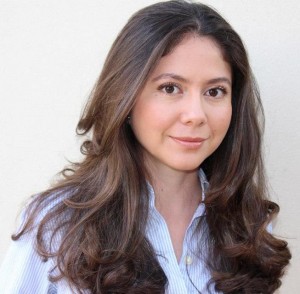by María José de León | Edited by Daniel Pier
Teachers work hard to help students learn mathematics, sciences and literacy, important skills all, but to prepare students to participate in a 21st century economy, is this enough? Ariel Fiszbein, Director of the Education Program at the Inter-American Dialogue, recently asked high-level representatives of OAS Member States: How can we prepare our youth and upcoming generations to participate in a more active society? How can we create schools that generate the technical abilities that are necessary to succeed at work and in business? He noted that in the Americas, unfortunately, there is a high mismatch between the skills demanded and the available supply.
In a recent study, employers in the region named as most lacking not academic skills but social and emotional skills (Maria Soledad Bos, Education Economist, Inter-American Development Bank). The ability to work in groups, adaptability to change, emotional intelligence, creativity and innovation are also not being stimulated enough by our school systems. Our region has over 20 million NINIS (15-24 year olds who neither work nor study), and promoting an entrepreneurial spirit in our young students could aid in decreasing this number. As noted by Ambassador Dr. Neil Parsan, Executive Secretary for Integral Development of the OAS, “Stimulating social entrepreneurship and innovative thinking in the classroom can be an instrument to tackling youth unemployment and fostering sustainable development in the region.”
The OAS 10 General Principles of Competitiveness in the Americas embrace providing a high-quality and pertinent education, and promoting innovation and entrepreneurship to enhance the competitiveness of Member States. Social innovation is happening and will continue in fields such as education, healthcare, sanitation, and energy, which are all crucial to reaching the United Nations Sustainable Development Goals. To address the importance of an entrepreneurial mindset in building competitive and sustainable economies in the region from an educational perspective, ITEN hosted this month its first Webinar on Social Entrepreneurship in the Classroom, introducing teachers to this topic.
Watch the ITEN Webinar “Social Entrepreneurship in the Classroom” by the Amani Institute here.
 María José has a background in Economics and Business Administration with a Master’s in International Relations. The past 11 years, her academic and professional experience has taken place in the United States, United Kingdom, France, Sweden, Germany and China. She has been working in Education and Human Development at the Organization of American States since 2012, and specifically in areas of international education, educational partnerships, and social entrepreneurship in the classroom.
María José has a background in Economics and Business Administration with a Master’s in International Relations. The past 11 years, her academic and professional experience has taken place in the United States, United Kingdom, France, Sweden, Germany and China. She has been working in Education and Human Development at the Organization of American States since 2012, and specifically in areas of international education, educational partnerships, and social entrepreneurship in the classroom.
